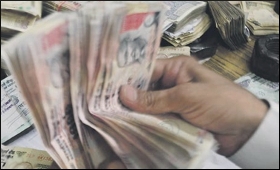|
|
|

|
Covid 2.0 unleashes credit stress for MFIs, small NBFCs
|
|

|
|
| Top Stories |
 |
|
|
|
SME Times News Bureau | 10 Jul, 2021
The impact of the second Covid wave has raised concerns
over the recovery of the microfinance (MFIs) and the small NBFC sector,
which was already battling the elevated credit stress and declining AUM
in FY21.
Accordingly, out of thirteen issuer downgrades by credit
rating agencies during Q1FY22 in the financial sector, ten issuers are
smaller MFI and NBFCs engaged in providing unsecured MSME loans,
personal and vehicle loans.
A report by Acuite Ratings said that
collection efficiencies which were seen recovering above 90 per cent in
Mar-21 have dropped to between 65-85 per cent levels during Q1FY22.
"Besides
the lower collections, the debt raising ability of these smaller
players has been impacted with an estimated 50 per cent of players
(having a loan portfolio of more than 500 crore) having received
adequate funds."
"Relief measures provided by the government and
RBI recently is expected to support the continuity of credit flow to
microfinance and MSME borrowers while also enhance liquidity relief to
the smaller lenders."
Furthermore, it said that impact of second
wave of Covid has been more pronounced on collections in the asset
classes of microfinance and two-wheeler loans as compared to the first
cycle.
"Even as two-wheeler as an asset class fared better during
the first wave of lockdowns, the impact has been greater during the
second cycle on account of the spread of the pandemic in rural areas and
the stress on the borrowers' cash flows due to loss of income as well
as high medical expenses," said Suman Chowdhury, Chief Analytical
Officer, Acuite Ratings & Research.
"Given the intermittent
nature of economic activities in the wake of Covid spread in Q1FY22, the
borrower income streams, particularly of those serviced by smaller
NBFCs or MFIs have been severely impacted, thereby exacerbating the
asset quality stress for these lenders."
However, the report
added that absence of moratorium has made the borrower stress more
visible in this cycle and along with lack of adequate funding, the
deterioration in liquidity and therefore credit quality for smaller
NBFCs and MFIs was almost inevitable.
|
|
|
| |
|
|
|
|
|
|
|
|
|
|
|
|
|
|
| |
| Customs Exchange Rates |
| Currency |
Import |
Export |
US Dollar
|
₹91.35
|
89.65 |
UK Pound
|
₹125.3
|
₹121.3 |
Euro
|
₹108.5
|
₹104.85 |
| Japanese
Yen |
₹58.65 |
₹56.8 |
| As on 19 Feb, 2026 |
|
|
| Daily Poll |
 |
 |
| What is your primary "Make or Break" expectation from the Finance Minister this year? |
|
|
|
|
|
| Commented Stories |
 |
|
|
|
|
|
| |
|